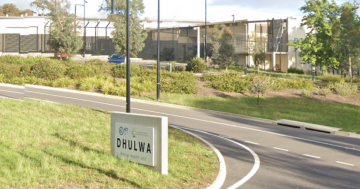
ACT Shadow Minister for Seniors Nicole Lawder has called on the ACT Government to make Canberra more dementia-friendly. Photo: Dominic Giannini.
For almost half a million Australians living with dementia, routine tasks can become daunting and debilitating if they have a sudden onset of confusion and disorientation.
ACT Shadow Minister for Seniors Nicole Lawder said she had been told that an elderly woman in her electorate was left stranded after she became disorientated and concerned that her bus was travelling in the wrong direction.
The driver let the woman out and she was forced to make her own way home. This incident occurred despite the woman using the same bus route countless times in the past to visit family.
Ms Lawder called on the ACT Government to investigate how to make Canberra easier to navigate for people with dementia, including better training for frontline staff to ensure people with dementia are treated with dignity in public.
“In the opposite of that, a similar thing happened and the bus driver went out of their way and dropped this person with dementia where they needed to go,” she said in an impassioned speech to the ACT Legislative Assembly.
“A little bit of awareness training would be really useful. These things are not too tricky to implement. We are talking about our friends and our family who deserve to be treated with dignity and respect.”
Small improvements across the city and within planning frameworks need to be implemented to make Canberra a more dementia-friendly city, said Ms Lawder.
“We need to make Canberra as dementia-friendly as possible so people can live independently, so families can take them out in our beautiful city as much as possible,” she said.
“We have a genuine opportunity to address [shortfalls in the Age-Friendly City Plan].”
The Age-Friendly City Plan spans from 2020 to 2024 and aims to make Canberra and its local services more accessible for older people in areas such as health, public transport, human rights and planning.
Ms Lawder said dementia-friendly design and practices do not need to be expensive, and can include choosing a carpet that does not have patterns, or installing additional lighting to help with depth perception.
Just across the road from the ACT Legislative Assembly, the dark paint on one of the ramps at Canberra Museum & Gallery made one Canberran with dementia extremely afraid and agitated because of depth-perception issues, said Ms Lawder.
“Sadly, there is still a stigma around dementia, and people don’t like talking about it,” she said. “The reality is most people are going to encounter it either themselves or through a loved one.
“Until there is a cure for dementia, there is always more we can do to make life easier for those living with the disease and supporting their carers.”
ACT Minister for Disability Emma Davidson said the current plan includes actions to work towards enhancing Canberra as a dementia-friendly city, and she supports the investigation to better inform future government decisions.
Pilot projects involving the creation of dementia-friendly spaces and events across Canberra will be available during the next year after being delayed due to the COVID-19 pandemic, she said.
Ms Lawder’s motion originally called on the ACT Government to formally incorporate any findings on how to make Canberra more dementia-friendly in the Age-Friendly City Plan and outline a timeframe for when recommendations will be implemented.
The motion also called on the government to report the findings and table the updated plan in the Legislative Assembly by 21 September, 2021.
The timelines were scrapped by the government before the motion was passed and any results from an investigation into how Canberra can become a more dementia-friendly city will be reported in the Age-Friendly City Plan’s annual report.





















